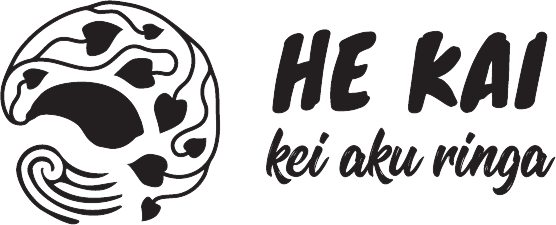23 Jun Megan Tunks: From Food Insecurity to Food Security
Covid 19 has impacted on whānau wellbeing at many levels. As well as employment and income, a further concern has been food security.
The evidence is widely known that whānau Māori have been over-represented amongst those identified as food insecure over the years. However, for other whānau, movement over the last few months from a place of being reasonably food secure, to one of being insecure has been rapid. As such whānau have had little time to adapt and plan strategies to cope.
This has been evidenced by the huge increase and demand for food parcels. The financial assistance from the government along with some tribal/provider reserves has meant Iwi/Māori Health, Social Service Providers and NGO have been quick to mobilise and respond to this growing need.
While food packages provide a necessary backstop for whānau, sustainability of access and availability to food needs to be considered. The collective support of whānau traditionally shown through manaakitanga of kai and resources, was challenged as a result of the restricted movement in the Level 4 Lockdown. The access to traditional food sources through hunting and fishing and limitations of travel to source cheaper sources of fresh produce (such as those at local community markets) placed further constraints on whānau.
Whānau Ora, Community and Not-for-Profit groups who run food banks, rely on food donations to fill parcels. Typical food products (but not limited to) often include canned soup, tomatoes and beans, pasta and rice, noodles, canned fruit, sometimes cereal and bread. Often food high in carbohydrates and sodium, however, a lifeline for those below the breadline.
Gaps in the food supply chain
Alert Level 4 identified gaps in the food supply chain. One of the results we saw was the increased prices for some products, lack of availability of others, including the budget brands that many whānau rely on. Our food system is largely influenced by the capitalist model, business interests influence our food supply system at all levels; production, storage, distribution and into our retail markets – in particular our supermarkets.
Food security is about the physical and economic access to meet people’s food preferences and dietary needs. Conversely, a state of food insecurity means when people are unable to access enough healthy food, whānau consume less nutritious food due to limited options. Food security is the ability to access kai but it doesn’t distinguish where food comes from.
Food needs to be accessible, nutritionally adequate, economically available for all – fair and affordable, culturally appropriate, safe and healthy and also ensure the wellbeing and protection of our whenua in the practices used to grow and supply. We know this accessibility is not the case for many whānau.
Toi Tangata was interviewed when we moved from the Alert Level 4 to Alert Level 3 about the opening up of fast food (junk food) outlets. Our response was simple – there is no mauri in unhealthy takeaways!
Food Sovereignty
Māori Public Health Responses Going Forward
Many of the District Health Boards support health education programmes which provide activities such as healthy cooking on a budget, healthy conversations, and gardening programmes (which may be limited in relation to housing realities for whānau). Nutrition health information is supported by tools and resources, and training and workforce development opportunities. There are a range of online sites which provide examples of recipes for cooking on a budget, including our own which can be found here.
While the tools and resources will assist kaimahi and assist whānau increase their knowledge and awareness, none of these activities on their own will be effective in meeting solutions to food access, healthy food sources and ultimately positive eating behaviour. It requires the combined efforts of a range of stakeholders. We have found it difficult to promote dietary guidelines for healthy eating, advocating our concerns on the impact of whānau food insecurity to Ministry of Health representatives. This has been as a result of visits and training in locations outside of Auckland in 2019, along with feedback received from kaimahi and whānau.
So many of our communities are struggling with socio-economic issues which impact on the right and access to affordable healthy kai. The health sector has multiple demands on resources, and there are a lot of drivers towards nutrition related illnesses which exist outside the health sector.
It is important to address food affordability and sustainability through multi sector responses, including community action, advocacy and policy approaches. We need to look at the points in the food system we can influence and make changes to.
A Māori systems approach looks at our cultural principles such as manaakitanga, our collective approaches as Iwi, hapū and whānau, and the Māori settings such as our marae and whenua which sustain us. Traditional kai practices such as Maramataka, maara kai, mahingā kai, fishing and hunting are part of the kapata kai which sustains whānau.
In New Zealand we have nine Healthy Families (HF) sites. The HF sites take a systems thinking approach, and food sovereignty is a part of this. Four of the nine providers are based within Māori/Iwi organisations, and most have been part of a collective effort to ensure their communities have been sustained. Rotorua Healthy Families a part of Te Arawa Whānau Ora, were quick to mobilise in the supply and distribution to hapū and whānau members of food package efforts to ensure the wellbeing of kaumatua and those affected by Covid 19.
Community Gardens and Food Co-ops are ways that are currently being used to increase access. As an example, the Wellington Regional Public Health Unit coordinates a food co-op, enabling affordable access to fruit and veggies. Kai cupboards in an urban setting have been placed through out some of the Auckland communities as a way of distributing surplus kai, although our local one disappeared while the lock down was on.
Collaborations such as Healthy Auckland Together (HAT) need to step up and use our combined voice, networks and expertise. HAT– is a coalition of 26 organisations including Toi Tangata, Hapai te Hauora Tapui, the three DHB, ARPHS, local government, Te Runanga o Ngati Whatua, health agencies, NGO, Auckland University and Consumer Interest groups. The HAT collaboration has participation from a range of players, however other players need to come on board to be part of this systems approach. These players could (should) include; Te Puni Kokiri, Ministry of Business Innovation and Employment, Ministry of Primary Industries and Ministry of Social Development.
NZ Supermarkets are controlled by the duopoly of Foodstuffs NZ and Woolworths NZ. Woolworths NZ is Australian owned and includes Countdown, Fresh Choice and Supervalue. Foodstuffs is a NZ owned Company controlling Pak n Save, New World and Four Square, and local Gilmours Cash and Carry. With local owner operators in each supermarket, the Foodstuffs Charter identifies the companies preference to work with local suppliers. While the organisation bases its business decisions on evidence and sound economic criteria, it also takes into account genuine social and environmental considerations.
Let’s put these providers to the test! We need to look at whānau centred policy decisions, locally owned and led solutions, including codesign approaches with our whānau who continue to be impacted. We need to get more (and healthy) food to be easily accessible and affordable for our whānau.
The Ministry of Social Development recently announced funding of $32m to support additional demand on foodbanks, food rescue and other providers of community food services, and to support communities to become more food secure. More information is available here.
If you have some other good examples of innovative initiatives that are happening in our communities, we’d love to hear from you! Email info@toitangata.co.nz
Megan Tunks CEO Toi Tangata


